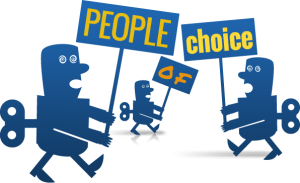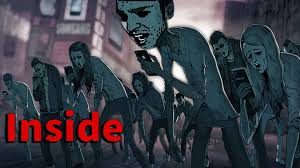Amani Nassar
Dr. Hall
English 1101
November 19, 2018
We: The Non Thinkers
We all think of ourselves as unique individuals, but are we really that unique from the next person? We all may not look the same or act exactly the same but for the most part we all comply to the same rules society has implemented on us. Of course we need rules to keep society ordered, though some of those rules form us to be the individuals that society wants, not the individuals we intended to be on our own. These means of conformity come natural to us, and we comply to the conformities to be seen as people who do the right things and to be accepted by society.
As a student taking a sociology course, I’ve come to learn how the principles of sociology serve the perfect explanation for the reasons of conformity. Sociology is the study of social forces that affect our daily lives as well as the way social life is organized and changes throughout time. The society or social forces we speak of can take many forms. The proper definition of society is a population that organizes its life through a specific set of social institutions or a specific culture. This means that society can be any group of individuals from the people you surround yourself with to the workplace, American society or even the internet.
Within a society like the workplace we all have a status, role, and social norms that we must follow. Ones status refers to their social position in society like a professor, student or a cashier. Our roles are a reflection of our status which refers to what an individual has to do because of their status position. For example the role of a student is to learn and participate in class, a professor’s role would be to teach, a cashiers role would be to assist customers by making transactions, and so on. Social norms socially organize our interactions as they are the rules we have to follow throughout our daily lives. To ensure that we fulfill our social norms, sanctions are implemented as a reward or punishment for following our social norms. Society does this to make sure we accomplish the goals of those we work for.
Almost any institution you can think of has a specific goal to achieve. A school’s goal is to educate students, a hospitals goal is to cure sick patients, and a factories goal is to manufacture many of the goods we purchase. Status positions, roles, norms and sanctions explain how we cooperate within institutions to help fulfill their goals, after all if these institutions did not have us to work for them, they could not operate. We of course know what we’re signing up for when we work for these institution. We know that we may put in more work to an institution than what we receive back when we are paid, but there’s not much we can do about it. If we do not work, there is no paycheck, no paycheck means no home, clothes, food and our chances of survival dwindles. Just as Jillian L. Anzalone, peer commenter of “Life Without Conformity Is No Life At All: The Survival Value of Compliance,” argues “Humans live to conform because they must conform to live.” In other words we live our lives through conforming, if we fail to do so we can not live. The structure of institutions within society, reflect the necessity of us conforming to help society continue thriving .
The structure of society makes our lives seem more orderly or in fact more predictable. The predictable lives we have set such a strict routine that our daily lives become repetitive, kind of like a zombies life. We get up, go to school or work, eat a few meals throughout the day, and go back home to repeat it all the next day, we do this all mindlessly just as a zombie would. During a zombie apocalypse it’s not hard to kill a zombie, you shoot them in the head and they’re dead, but there’s always more zombies to come so you shoot the rest of them some more and repeat it all the next day of the zombie apocalypse. We’ve created these fictional characters that reflect our daily lives as we relate to them so much and even act in such a repetitive manner as they do, it’s kind of ironic.
Our mindless behavior, or what we call a strict routine, has indeed turned us into monster, walking brainless monsters to be exact. But what makes a monster, a monster? Not all monsters are evil, we’re not entirely evil zombies ourselves; we’re just brainless. Monstrosity is not something we are born with but rather something we learn. Monstrosity can be developed through trauma, its seen in TV, and it even comes from technology. Our reliance on technology makes us the zombies that we are, which is what society wants. Our information comes from technology, the latest trends come from technology, our lives revolve around technology. We’ve become so use to our mindless acts that its normal to us, we have become unaware of how “structured” our lives are, and it’s not even structured because of us. Our routine isn’t just any routine, it’s a mindless one.
Bibliography
“Why We Comply.” Review and Criticisms of Attachment Theory, Rochester Institute of Technology, 2005, www.personalityresearch.org/papers/lumbert.removed.




